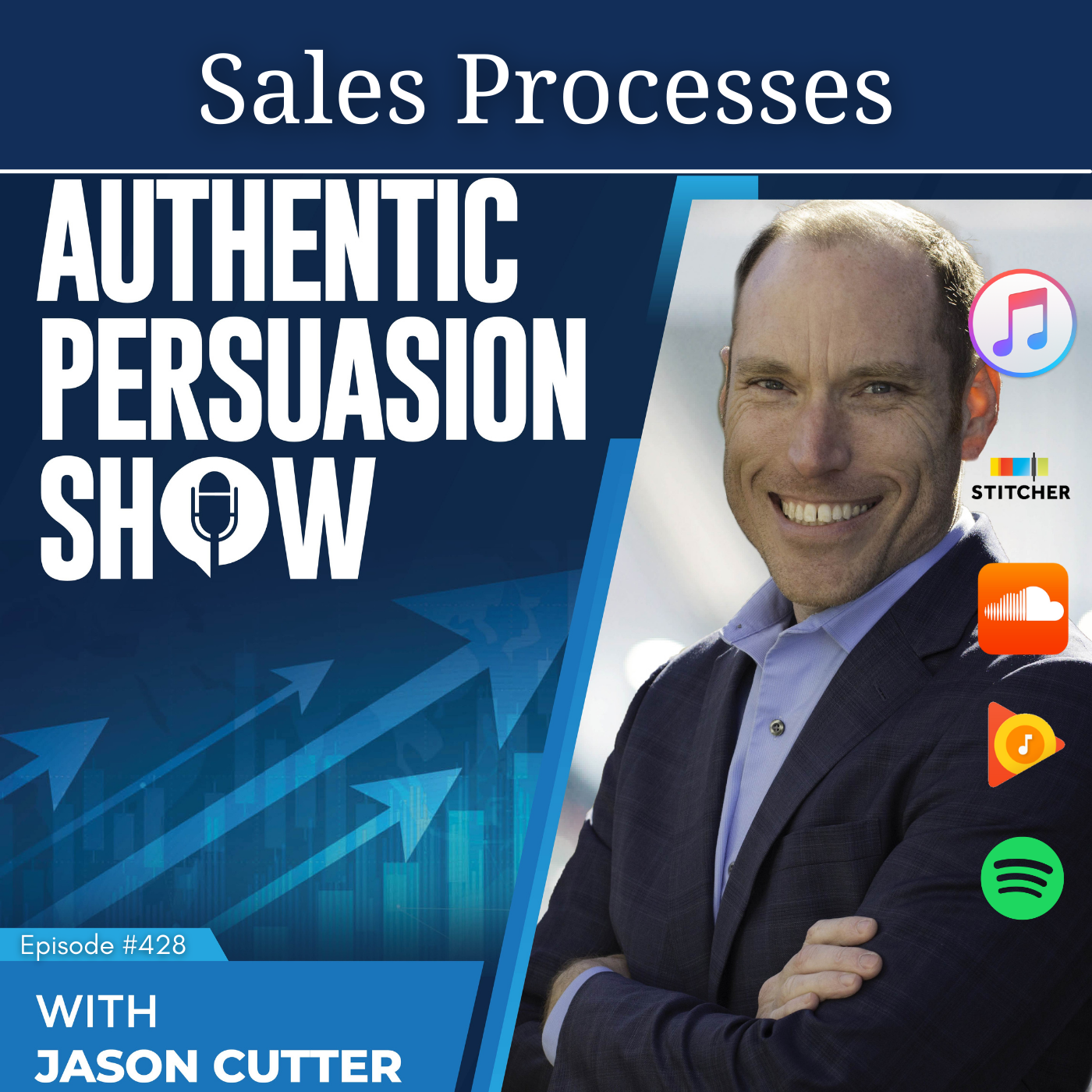Show Notes
Two groups down…two more to go.
On this episode I start the conversation about Supporters.
No group is better or worse than the others, and no one is right or wrong. But we all love the Supporters in our life. We all know that they will be there for us no matter what.
In Part 1, I cover what the Support fears most, what they think about confrontation, and their level of empathy towards helping others (Spoiler: it’s off the charts).
Episode 36 – Transcript
On this episode I talk about the behavior style group that will do everything they can to help others, even before taking care of themselves.
Welcome to Episode 36 of The Sales Experience Podcast. Last week, I started the discussion of behavior types. Episode 31 is a good place to start for an overview of the behaviors, and how it’s even remotely possible to take 7 billion people and break them up into four groups. It might seem like it’s not possible, but it is if you go high level enough. And the key is to not go to high level, because then you can’t functionally use this information to help with your relationships. Now, breaking down the population into four types is a good way to go.
There’s other ones like Myers Briggs, like I’ve mentioned, which in my opinion, are very detailed like astrological signs, but more complicated, and A, tough to source where somebody is at in the personality types like Myers Briggs, which has 16. It’s tough to know where someone’s at unless they take the 93 point assessment or you have a master’s degree in Myers Briggs, and you can assess somebody and analyze somebody in the conversation.
Astrological charts, astrological signs are great, if you know somebody’s birthday, and you’ve memorized all 12 of the signs, that’s great. But the key is to have a usable, useful, quick way of determining what kind of style, what kind of preferences, what kind of behaviors the person you’re talking to, might have and which way they want to go, and how best to deal with them. So, that’s how I am setting this all up. It’s why I’m doing this, why I know from years and years of experience of teaching this, but then also using this and how effective it can work in the sales process.
Now in the episodes last week, I covered the two polar opposites of analysts and promoters. And so go back and listen to those, they’re two episodes each for each group. And now I’m going to start the next two opposite. So, there’s four different types, we’ve covered two, this is number three, which is the supporters. Now supporters as the name says and explains, they are the group that are nurturing, supportive. They are the ones that will literally give you the shirt off of their back, and they do everything for everyone else, before they would do anything for their own needs to take care of themselves.
These are the ones like if you think about a classic grandma, or your grandma that you might have, who would just take care of everything, take care of everyone, spoil everyone, make sure everyone is set, and you know that they aren’t doing much for themselves. In fact, it’s typical when you try to do anything for a supporter in your life, whether it’s, you know, somebody in your family or somebody else that you know that they really will resist you doing anything for them or giving them any gifts or doing them any favors. They just don’t like that because they feel like their job is to give to others, and they don’t like taking because that doesn’t feel natural for them.
Now, let’s get into their fears. So, there’s two big fears when it comes to supporters. The first one is that they absolutely do not like any form of confrontation. Now, they will do some confrontation, like if you have a grandma like I had, and you know, if you’re doing something wrong, they’re going to correct you but it’s in a loving, nurturing way. But anything outside of that, they do not want to have any confrontation, any risk of that. And so they will do everything they can to avoid confrontation.
They might not mention things that they have issues with or want to push back on anyone, debate anything. You know, if there’s a subject that comes up and they can’t agree with it, or they don’t agree with it, then most of the time, they’ll just avoid it, move on, change the subject. You know, they’re not going to get into heated debates over politics or religion or people’s views on things, they’re just going to go with the flow, avoid confrontation, which is a big thing to keep in mind. Next episode, we’ll talk about how that plays into when you’re trying to sell somebody and what that looks like.
The other big fear of supporters is that they are afraid that if somebody is in need, they won’t be able to help them. So, their biggest fear is that they won’t have the time, they won’t have the money or whatever it is if somebody is in need. If somebody calls them at two o’clock in the morning, they want to make sure that they can help that person out. Whether that person needs a ride, that person needs to be bailed out of jail or their car broke down and they need help. Whatever it is, one of the biggest fears of supporters is that they won’t have whatever it is needed for the other person when they’re in trouble or they have a request.
And so that usually leads them to look like they’re hoarding a lot of things, saving a lot of things, saving money, not wanting to spend money because they really want to help have that mattress money. They want to have the available funds and resources at any moment when anyone needs help. And they’re usually the ones that are the best person to turn to if you need help because they will do it. But it also can get them in trouble because you’ll see that and a lot of supporters were a lot of times if somebody realizes that they’ll take advantage of them and just keep using them and using them because their support and their giving and their nurturing has no end. And so that can be a downside for the supporter, but their biggest fear is still not being able to help people in their moment of need.
Now, if we move on to the empathy side, right, because we cover confrontation, they don’t like that. But for empathy, they have a really high level of outward empathy. Now, again, I mentioned this before, all the different behavior groups, everybody has a certain level of empathy. I mean, if we just kind of move away from narcissist or sociopath or psychopaths, you know, and talk about everybody else, everybody has a level of empathy that they give. Again, some people are different.
Analysts are going to handle a situation different than a promoter. Supporter on the other hand, if we go to the example I use during the analyst discussion, if somebody you know, let’s say, a kid falls on their bike supporters around, they’re going to instantly run to their attention, scoop them up, you know, kiss the boo-boo, give them a band aid, give them ice cream, put them in front of the TV, or let them hang out with them and make them feel better. And really, their goal is to help that person move on from being hurt, whether it’s physical or mental. They’re going to blame the bike for causing the problem, they’re going to blame the person who let the kid ride the bike for causing the problem. Everything is shift away from the person who’s hurt from feeling that pain or feeling responsible for it, and helping them move forward.
And so supporters will break a high level of nurturing empathy to help somebody out of that painful situation they’re in again, whether it’s physical, it’s emotional. And then that goes into the side where they want to be the one to help. I mean, if you are at a playground and you see somebody fall and you know, the parent runs in immediately to take care of them and make sure they don’t feel bad and just make everything go away, that parent has some supporters side, whether its primary or secondary within them. Versus there’s other times where you see a kid fall at the park or at the playground and the parent’s sitting there, they see them so they are paying attention and not just sitting on their phone. They see them and then they smile at the kid and say go on keep having fun. That’s a different one because that one’s probably more analytical side thinking, yeah, life happens, you fall, dust yourself off, get up and move on, which is a little bit different than how supporters kind of react to that.
Now, that’s it for this episode. And remember, there’s no good or bad or right or wrong with any of these, how each group or person act is not better than anyone else. So, as I’m going through this, this is just my reminder and my disclaimer is that none of this is meant to rate which group is better than others. It’s really for awareness. Everybody is different, everyone is special, everyone has their strengths, and what they bring to the world and to relationships and it’s also important. But there obviously, is different ways that it affects interactions. And then it says outside the scope of what I can cover in these two weeks, and as a part of the different workshops that I provide.
But when we look at a company, there is clearly certain roles and jobs within a company that’s a way better fit for some behavior groups than they are for others. If we look at for example, you know, you’ve got a supporter, where do the supporters go? Typically supporters are great in some kind of customer service or support role because they just want to make everything better and help people and take away any issues that people have and put them in a better situation. And so that’s something to keep in mind as well. Again, not right or wrong, not that anybody can’t do anything within a company. It’s just where is it more of a natural fit and where do you tend to see people as a good fit with who they are and where their comfort zone is.
Well, that’s it for this discussion on supporters part one, make sure to come back tomorrow and listen to the second part, I’m going to cover how the supporters like to buy and some tips on how to sell to this group. And again, what to avoid doing when you’re interacting with prospects that are supporters.
And until next time, always remember that everything in life is sales and people remember the experience you gave them.
![[E36] Behavior Week: Supporter Part I – Fears, Confrontation, and Empathy](https://episodes.castos.com/salesexperiencepodcast/images/TSEP-Cover-Behavior-Week.png)


